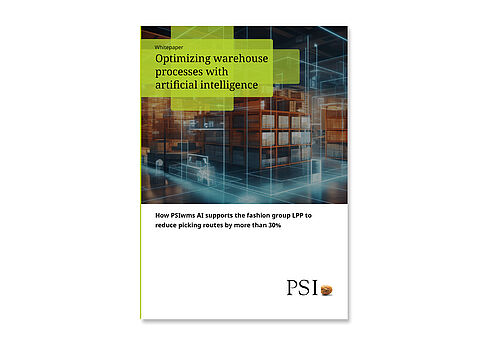Sustainable urban mobility and CO2 reduction in the city of Rosenheim
Berlin, May 10, 2022 - After two years, the KIBO-NUM research project for AI-based online traffic optimization for sustainable urban mobility, has been successfully completed. The project was funded within the R&D program "Information and Communication Technology" of the Bavarian Ministry of Economic Affairs, Regional Development and Energy, partners were Urban Mobility Innovations, PSI FLS Fuzzy Logik & Neuro Systeme GmbH and the City of Rosenheim as associated partner.
The goal of the KIBO-NUM project was the collaborative creation of a cloud-based service for the sustainable management of traffic flows of cities and municipalities, to manage current and future challenges of urban traffic with the consistent data-driven approach and using AI technologies.
Traditional traffic management systems can only be operated by large cities due to the cost and manpower involved. In smaller cities, traffic signal control systems are usually not operated by the city itself, but by the higher-level state authority, or are configured statically. Thus, it is not possible to intervene directly in the current traffic and mobility in order to independently manage pollution caused by emissions and noise or to carry out short- or long-term planning of traffic-related decisions. Therefore, one concern of the project was to show that digital technologies can create new opportunities for smaller and medium-sized cities to manage their traffic problems.
With the support of the methods used, data on the current traffic situation was collected and consolidated; and forecasts for further developments in the next minutes and hours were derived. On this data basis, collective measures for traffic flow optimization, as well as proposals for individual trips, were identified and evaluated with PSI's own decision and optimization software Qualicision based on multi-criteria. Information and communication technology, and in particular the application of artificial intelligence based on increasingly available "Urban Big Data", offer the opportunity to achieve an objective balance of the interests of road users, citizens and the environment. This contributes significantly to the reduction of CO2 emissions and creates the basis for an overall compatible, sustainable and flexible mobility offer of the future.
The company B2M Software GmbH ([ui!] urban mobility innovations - umi) is part of the [ui!] group and provider of mobility services as well as solutions in the field of "Smart City". [ui!] is a market leader in infrastructure and data for smart cities, delivering successful smart city projects across Europe (including chairing the EIP Transport Action Plan, H2020 projects including GrowSmarter and Sharing Cities, EIB-funded urban mobility programs for five countries). Today, the [ui!] Group has companies in Germany, UK, Hungary, USA and Australia. [ui!] sees itself as a partner to cities and municipalities when it comes to developing new digital value-added services. One example of this is the electrification and sharing ("sharing") of fleet vehicles moving around the neighborhood.
The PSI Group develops its own software products for optimizing the flow of energy and materials for utilities (energy grids, energy trading, public transport) and industry (metals production, automotive, mechanical engineering, logistics). The industry-specific products, which are built from standard components, are sold both directly and via the multi-cloud PSI App Store and can also be customized by customers and partners themselves. PSI was founded in 1969 and employs more than 2,200 people worldwide.



